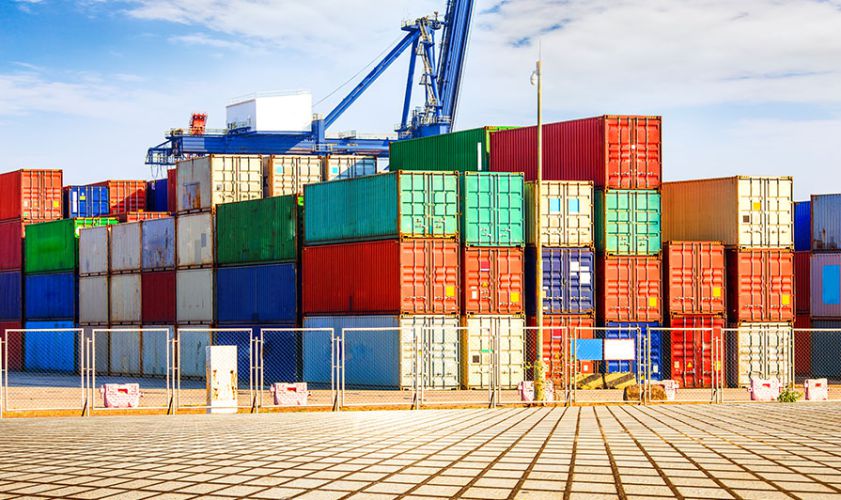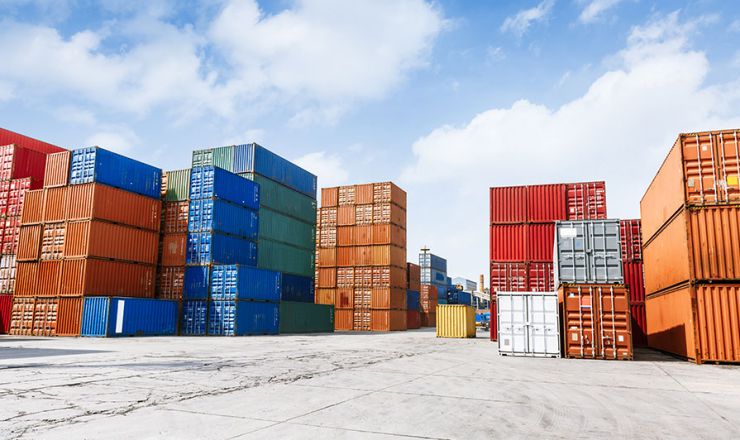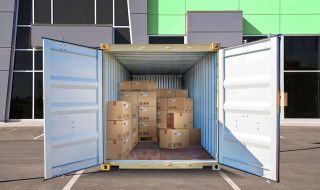Storage, Conex, Cargo Or Shipping Container, What's The Difference Really?
MAY 8, 2018 BY

Customers often ask, “What’s the difference between a storage container and a shipping container?” In case you’re wondering too, you’ve come to the right place.
All shipping containers are essentially large, weather-resistant steel boxes used to store and ship cargo across the seas, but over time shipping containers have accumulated different names.

Shipping containers. Shipping containers are standard sized boxes used to store and transport goods from one place to another via cargo ship. Most shipping containers are made from Corten steel, a high-quality, corrugated steel that slowly corrodes, making it the ideal material to survive extreme weather at sea.
Shipping containers come in many standard sizes, though 20-foot and 40-foot containers are the most widely used. Their corrugated structure increases the structural integrity of the box. Shipping container accessories are available to customize storage and increase security for storing valuable goods.
Conex containers. Conex container is another word for a shipping container. During World War II, standard sized shipping containers were developed to ship military cargo to the front lines. These boxes were called “Transporters.” The term “conex” came from the development of Transporters into Container Express or CONEX boxes after the Korean War. Conex containers evolved into modular units that could stack efficiently to store more cargo in one location.
Cargo Containers. A cargo container is another name for a shipping container. This term comes from the use of shipping containers to transport cargo across the seas.
Storage Containers. Shipping containers are built to store goods during transit, so it is only natural that shipping containers are also referred to as storage containers. However, storage containers are available in many different sizes and made from various materials. For example, shipping containers made of lightweight aluminum are not for transporting cargo at sea, but they are widely used to store all kinds of commercial and personal goods.
What’s the best container for your business?
What storage do you need? Heavy duty shipping containers or customized storage containers? Used containers, new containers, container for rents or container for sales?

If you’re looking to store heavy equipment, large objects or spare parts, then a used shipping container is a good idea. However, if you want to store smaller items for retail or something more valuable, then opt for a new storage container.
If you’re looking for a long-term storage solution, then it’s best to buy a shipping container rather than rent. Short term or seasonal storage needs are best met by rented containers.
What size shipping container do you need?
There are several standard container sizes: 10-foot, 20-foot, 24-foot and 40-foot containers. A 20-foot container is generally designed to hold heavy cargo such as machinery, and heavy commodities such as sugar, paper, cement and steel. Larger, 40 foot containers are designed to carry more volume but less weight, so you can store items like consumer goods and appliances.
If you’re looking for storage space, look no further than Mobile Modular Portable Storage. We’ve got your storage needs covered with different size containers at major locations throughout the country. We’ll get your container delivered to you in no time with our very own delivery service!
We also offer additional two days when you rent a container with our 30-day billing cycle. Contact us if you’d like to see a quote, or simply get in touch with us if you’ve got any questions.